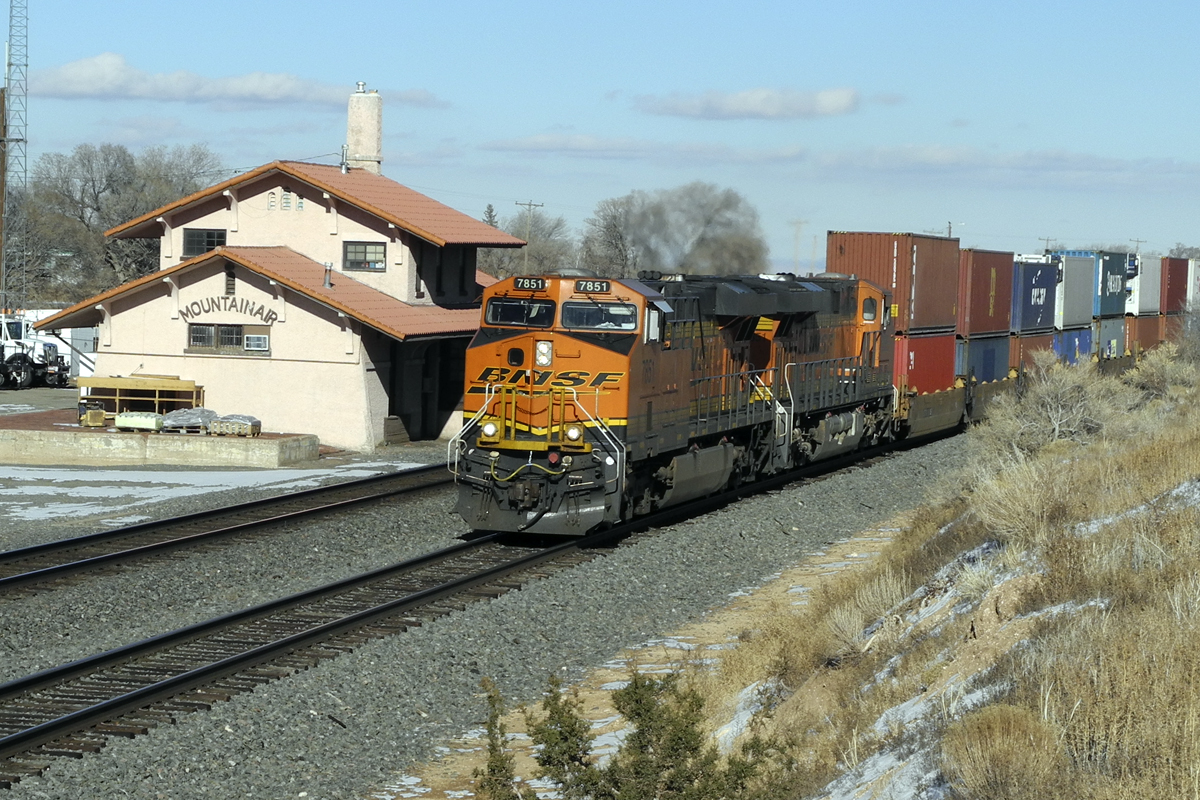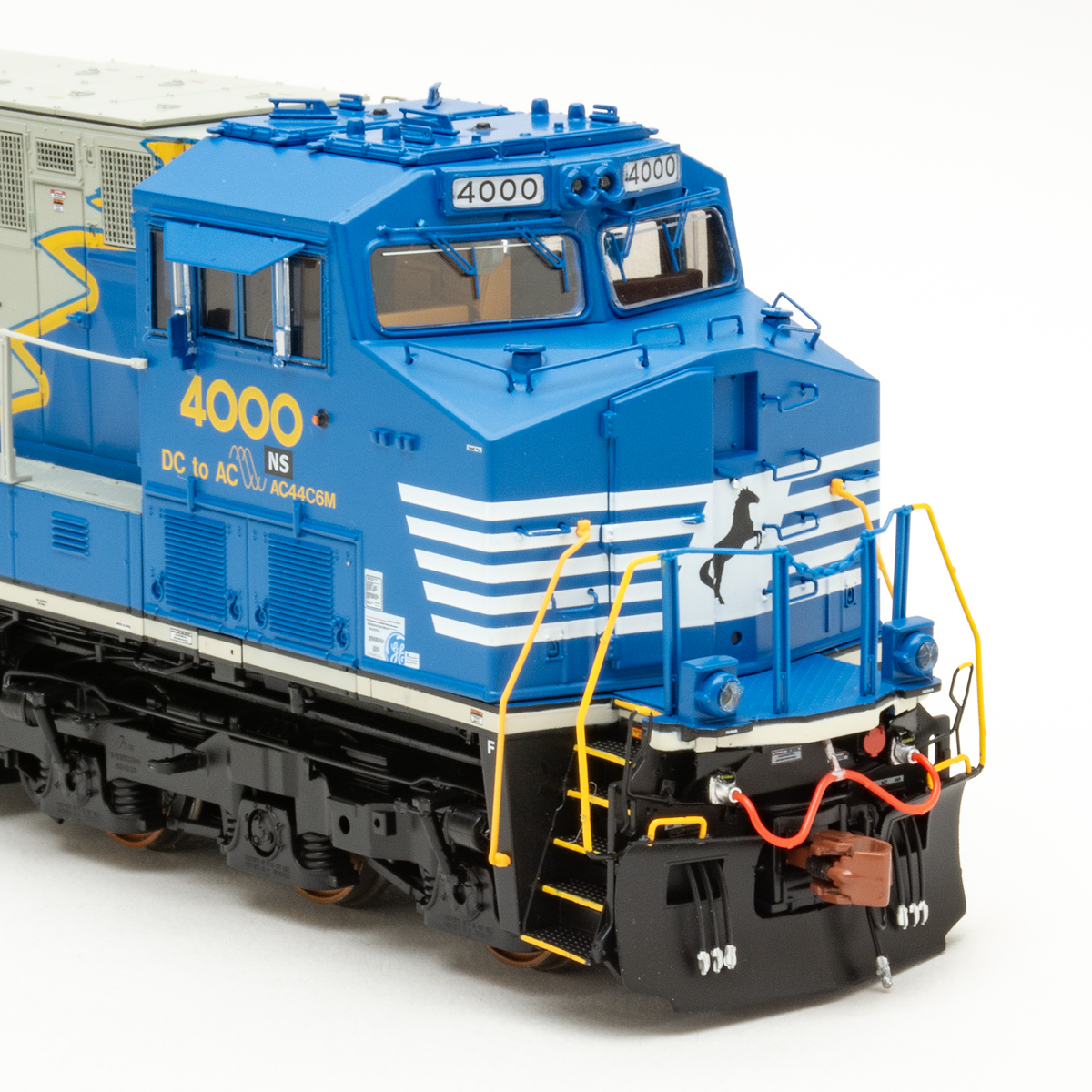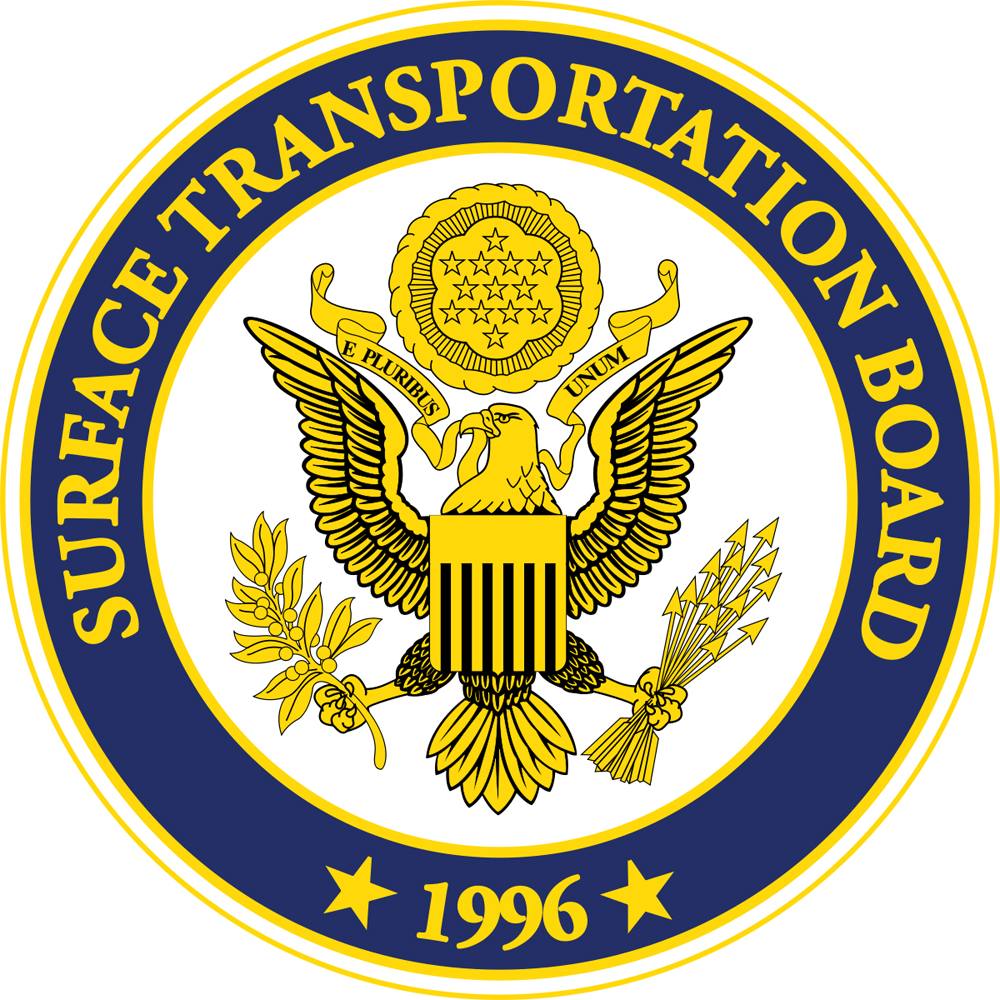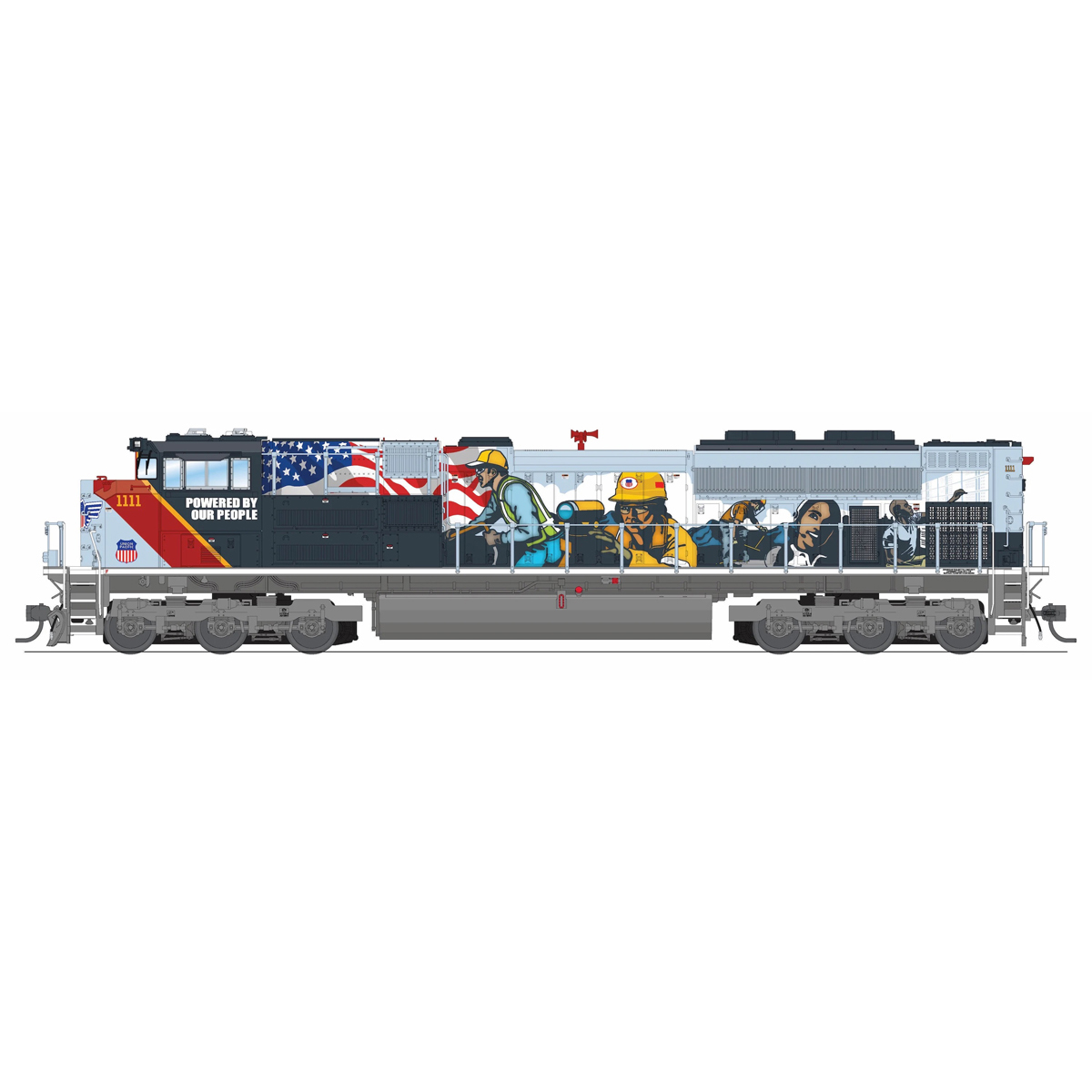A tip of the iceberg is the arrest last month of two people alleged to have plundered BNSF Railway trains in rural New Mexico. BNSF Railway police investigated the thefts in Torrance County and were joined in raiding an Albuquerque home by local police and federal agents from the Department of Homeland Security.
BNSF spokesman Joe Sloan told Trains News Wire the investigation is continuing and that no information beyond a written statement is being released. That statement said several burglaries prompted a month-long investigation and that additional arrests are possible.
Homeland Security got involved only after it appeared one suspect was in the country illegally and in possession of stolen firearms. He is now in federal custody on weapons charges.
Albuquerque news media say that crooks stole as much as $200,000 in televisions and laptop computers, but Sloan said that figure didn’t come from BNSF. Local police deferred to the railroad for comment.
The New Mexico case pales in comparison to the December roundup in New Jersey of 10 alleged members of a theft ring that called itself the “Conrail Boyz.” The gang dates to the 1990s when Conrail operated much of the rail system in the Northeast before being divided between Norfolk Southern and CSX Transportation in 1999.
Conrail survives today only as the operator for joint NS-CSX locations. NS referred questions about cargo thefts and the Conrail Boyz to the Hudson County Prosecutor’s Office, which has not responded to a query from Trains News Wire. CSX also did not respond to a request for comment.
According to news accounts, gang members studied railroad operating practices and rode trains for miles cutting locks on shipping containers while looking for high-end merchandise like sneakers, watches, liquor, and electronics. The stolen goods were then pitched from slow-moving trains or offloaded when the trains stopped.
Law enforcement broke up the gang once before with 24 arrests in 2003. At the time, and after millions of dollars in losses stretching back at least a decade, the Conrail Boyz were described as the largest criminal gang ever to target railroads.
One theft involved a phony pickup order that let a gang member drive a container out of a Jersey City rail yard making off with more than 17,000 Sony PlayStations valued at $5 million. Gang members also reportedly used radios to impersonate rail workers and find out the sidings where particular trains would be stopping.
“You’ll see estimates of a couple hundred million to billions,” said Frank Scafidi, a former FBI special agent and current West Coast public affairs director for the National Insurance Crime Bureau. “We really don’t know.
“Not only are railroad companies reluctant to talk about it, but everybody with a hand in it. Nobody likes to talk about what the potential loss is or what the losses are. From the insurance side, we understand that.”
The lack of data is slowly changing after the insurance industry, citing a provision in the 2005 revision of the USA PATRIOT Act, prodded the FBI to add cargo thefts to its Uniform Crime Reporting system. But recently published crime data from 2013 shows only seven states submitting data from a relative handful of local jurisdictions.
Now the effort is on to get local agencies to file reports and submit data to the UCR to help define the problem and the best places to apply resources, Scafidi added. It is generally accepted that warehouses are the primary source of cargo thefts followed by trucks parked or in transit, he said.
Crime data shows 83 agencies in the seven states reporting 189 incidents with total losses of $12 million. Barely $2 million of the cargo was recovered.
How many of those thefts involved railroads is not known. Data collection also is complicated by larger railroads having their own police departments and by being self-insured don’t belong to organizations like the insurance crime bureau.
The FBI cites as one success the Memphis Cargo Theft Task Force that involves its special agents, the U.S. Marshals Service and local and state law enforcement. While the task force, one of seven in the country at last report, focuses on trucks and warehouses, thefts from trains also are part of the mix.
“Crew leaders know where to find willing buyers, too – from small mom and pop stores who don’t ask questions when they buy at prices below wholesale to online merchants who may or may not know they are purchasing stolen goods,” the FBI said in a 2012 report on the task force. Cargo theft is a multibillion-dollar problem with the costs of lost merchandise and disrupted supply chains passed on to consumers, the bureau said.
The recent bust of the Conrail Boyz included alleged affiliates who were fencing the stolen property from stores in Jersey City.
“When things are stolen, eventually the effect of that is prices are going to go up on products,” Special Agent Conrad Straube, who coordinated the Memphis task force, says in an FBI podcast. “Whether shoes are stolen, pharmaceuticals are stolen, tires are stolen, somebody has to end up paying for that.”
Memphis-area thefts of truckloads of pharmaceuticals dropped by more than three-quarters and recoveries more than doubled after the industry formed its own coalition, began working with law enforcement and took actions of its own like adding GPS tracking to trailers, the FBI said.
















Mr. Klippel. that would work in some areas but in major midwest cities trains operate through poorer sections of town, ie: Chicago where I once worked you would have to deport a lot of blacks, Afro-Americans, etc.
Theft rates and losses will never be totally known as minor thefts never have a claim filed as the railroad and shippers have factored in a deductible figure in the shipping rates.
I once arrested a black male adult who had broken into ten containers but he had no loot in his duffel bag as he hadn't found anything he wanted. I thought the vodka gift sets were kind of nice.
In Chicago that is felony theft and he went back to prison as he was a repeat offender.
Deport all the convicted legal or illegal immigrants back to where they came from, that should reduce the percentages somewhat !
A good read but I had to have a good laugh over a topic as old as the industry itself: 'Cargo theft looms as railroad problem' – That's an interesting choice of wording that implies cargo theft just started last week, when it's been a problem in the industry since the beginning. It's no coincidence and also quite interesting that the railroad industry is so tight lipped when it comes to the issue of cargo theft, until one weighs the issues from the their point of view. Cargo theft isn't rocket science and stealing cargo from the railroad is elementary. Any slacker with a pair of bolt cutters and a little false bravado can muster up the courage to snip the seal on a container and crack open the door.
Railroads are extremely vulnerable to theft and do not want to advertise the fact that essentially any of the hundreds of trailers and containers on a single train can be carrying anything found down at the local Walmart or Costco and the chances of it carrying something valuable and appealing is great. Trailers, boxcars, containers are like shiny and colorful unwrapped Christmas presents to a bratty cargo thief and that's where the appeal lies: The average thief doesn't know what's inside until they get inside. A lack of prudence ensures that the average cargo thief will prob not get much, thus minimizing losses as they will only hit a few trailers and take what they can, be it $2 bags of generic cat litter and low value dish detergent (Chicago May 2015) or $3,000 Plasma TV's (Ludlow CA 2012) or like the latest incident in New Mexico, which rest assured wasn't just a few isolated burglaries. These thieves knew enough to skip the canned goods and paper products and kept opening doors until they found the computers and TV's. The railroad isn't talking, they issue a generic statement and pray that the story dies and goes away quickly. All that stands between a thief and the freight is a red signal and luck.
It boils down to good old fashioned luck for all parties concerned. Much like a game of roulette, no skill is needed to pick a number nor a trailer on a 9,000' intermodal parked on a siding for 20 mins. Sometimes they get cat litter or sometimes they come up on TV's. Also working against the industry is the fact that breaking into a trailer or boxcar on a siding in the middle of nowhere doesn't require the criminal pedigree or hardened mindset that comes standard on even your average residential or commercial burglar. They don't have to worry much about a store employee or homeowner fighting back when the only threat and deterrent between them and a 53' trailer full of booze is a 2 man train crew sitting in an idling locomotive more than a mile away.
While the topic of a lack of security at the rail yards is a common theme, it's not the rail yards that presents the biggest challenge for security nor are they a favorite target for thieves. It's the thousands of miles of tracks that snake through urban jungles and sidings that traverse through the middle of nowhere yet close to everywhere. Places just outside of town and down the road, in off the beaten path canyons in New Mexico and the California Desert. The rails that traverse though the Mojave Desert are remote enough and void of the things that deter theft: Witnesses. Remote enough yet within a mile of an interstate off ramp and 20 minutes from urban centers.
Cargo theft isn't anything new to the rails, the railroads just aren't talking about it because they don't want or need the free advertising. It's a nightmare for the brass I'd imagine, and one they try to sweep under the rug, because whenever someone gets caught, their story serves no better purpose than to enlighten an entire new group of thieves to the possibilities of train pilfering. A Catch-22 for the railroad. I don't think silence from the railroad on the issue of cargo theft benefits the industry yet neither does publicly addressing it either. Both actually is a disservice to their customers whom they can't offer a theft free service to. Yet talking about it surely wakes up some of the criminal element who never would of considered this easy road, and one that the industry doesn't want to shine a spotlight on because it's a sad fact: It's easy to steal cargo from a freight train. As far as recovery, insurance is the antidote and as long as someone is reimbursing the shipper not much noise gets made.
The key to combating theft on the rails is rooted in the idea to prevent and deter it in the first place and it is actually fairly simple and low cost, You see it in use on most intermodal trains but may not have given it much thought; tightly spaced trailers that prevent the doors from being opened wide enough to be able access and grab cargo; placing 20' containers with doors facing inward and toward each other, and placement of high value cargo closer to the locomotives are tactics that don't cost anything other than a little effort. Adding a second and third bolt seal is very effective as time is a big factor when thieves strike trains. Plus with a plethora of wireless and GPS technology, cargo security is now as simple as an app on a smartphone, with third party security firms offering covert GPS real time tracking and shipment monitoring as well as remote door lock capabilities and alarms that instantly alert the right folks the second a door is breached. The use of drone surveillance and infrared cameras are good tools to have in the arsenal. The big pink elephant in the room however is aside from deterring a novice thief and inconveniencing the experienced ones, most of these are tools that aid in recovery and apprehension of cargo and thieves rather than preventing it. It's an environment where the good guys are limited to reaction rather than being proactive because there is simply too much open land and unguarded rails out there.
Changes in state and federal law have made a simple boxcar break in a pretty big crime, and congress added new penalties to certain types of cargo theft and commodities, namely pharmaceuticals. The laws are in place, the technology is available and the security methods are quite simple. Even the most sophisticated theft ring is only going to get away with stealing for a limited amount of time before 2 and 2 is put together and the hammer falls. Investigation of cargo theft on the rails isn't that complex. It's about connecting the dots and identifying the problem area. If trains that stop at a certain siding are being burglarized they can pinpoint and narrow down the day of the week and the time it occurred and simply retrace a thief's steps. (Friday night is statistically when most cargo thefts on the rails occur) – Then a simple set up with surveillance and game of catch the thieves in the act can take place.
The good news about railroad cargo theft is it's actually quite easy to catch the culprit. The thief winds up unwittingly drawing the good guys a map. They never fail to disappoint because they hardly ever keep quiet and can't resist the urge to brag about their score. Be it good (a few TV's) or a wasted effort (a trailer with rolls of newsprint) – They usually live close to the tracks and are known to local law enforcement. It's hard to make off with cases of goods without having a truck or van to transport and then they have to store it somewhere. They always keep one or more items for themselves, be it a TV, a case of ketchup, etc. For some reason they think law enforcement is oblivious to online commerce, so they freely advertise the goods on popular sites such as Craigslist and Ebay or local for sale pages on social media. It doesn't take much to connect the dots. 10 DVD players are stolen from a BNSF train parked waiting on a siding on a Fri night. By Tues the culprits have already bragged about it to their cronies, sold 4 on Ebay, gave 1 to a girlfriend as a present and kept one for personal use and hidden the rest in their grandma's backyard shed. Busted.
Then there is the employees who have a hand in the theft of cargo, directly or indirectly. A lot of times (more often than one would imagine) a cargo theft case is kept hush-hush because the cargo is just the tip of a criminal investigation, and while investigating a case with the cooperation of local and federal law enforcement it is determined that the guys are not only stealing from trains, they are also cooking meth and running an identity theft ring so it becomes part of an ongoing criminal investigation.
Or … (the ones that really hurt) …
They find that the thief is none other than a long time trusted employee who thought that nobody would notice the few cases of goods they occasionally helped themselves to while noting open doors on a intermodal train during a yard inspection. They report the burglary and the number of missing cases gets crossed out 3 times – It goes from 5 cases of wine missing to 25, That is quite common, as is sadly, learning that the guy who you caught with the garage full of stolen TV's knew exactly which trailer to open thanks to a tip from a railroad employee down at the ramp. Those statistics would never be made public because quite frankly, there are too many thefts where the thief is also employed by the railroad.
That isn't something the railroad will want to mention in the annual Christmas letter to their shareholders and customers. So they remain tightlipped and the public hears about a new phenomenon down at the local railyard – 'cargo theft looms as railroad problem' and we are good for another 3.5 years or so, until the old news becomes 'new' news again.
E T Patton
Los Angeles CA
This is nothing new. There was a gang of Romanian refugees who boarded CN container trains and stole from them in Nova Scotia and New Brunswick in the mid-1990's. They were soon caught and imprisoned. Clearly domestic container operators in the US need to harden the doors and seals of their containers.
A friend of mine who is a state's attorney in New Mexico worked with local law enforcement and BNSF police on this issue for a long time-20 years ago. This is not a new problem. As noted, there's a lot of unguarded track out there, and all you need is a couple of simple tools and a little time. You'd think with all the technology out there now, it would be a fairly simple thing to equip containers with devices to detect unauthorized opening. Granted, they'd have to be sturdy, as they would need to be able to work in all kinds of conditions over a 200 degree temperature range, but it could be done.
My Dad's cousin back in the early eighties swiped most of a boxcar full of Budweiser Beer after selling all he could, he started calling family members to come get some for "free". he called my dad who doesn't drink and wanted him to get a truckload to "keep" for him, my dad's next call was to our other cousin the Sheriff. When the Sheriff arrived they were cases of beer stacked everywhere, even in his shower, the thief thought the Sheriff was there to get his free beer and was highly upset when instead of giving away beer he got arrested, after a five year vacation to the pen, he got out and promptly got arrested again by his cousin the sheriff for theft. True Story, this has been going on since the wild west days.
In the 1980-1981, when I worked in Texas, I remember the "boxcars" of cigarettes had a cable lock , about the thickness of my little finger, which was much stronger , than the typical railroad seal. The warehouse was nondescript, with just a name on it, but I suspect the crooks might have know about it.
My dad worked for B&O, later Chessie, and last CSX as a railroad police officer. He had the rank of Lieutenant at the "height" of his career. Then he uncovered and reported railroad theft, which was done by higher-ups in the railroad itself! Captains would condemn boxcars full of property, and turn it over to salvagers, who would sell the contents, then split the profits with the officers involved. The company who was transporting the property would be reimbursed by insurance. When my Dad blew the whistle, his case went all the way to Baltimore, where the heads of the CSX basically buried him. Busted back to patrolman, no Union support. It was a shame, and sad to see that the railroads who promise safe transport of valued goods can actually be compromised by the police who make those promises. I'm not implying that all police are corrupt, but there's a large system of "inventory shrinkage" that can be explained.
As for rail yards, my Dad's stories of blatant theft from stationary & moving rolling stock in Bar Yard was pretty graphic. Those people were ballsy, and seemed it was worth the risk stealing stuff illegally and with great danger, rather than get a job and earn it honestly.
Tony
Las Vegas, NV
When locomotives (not to mention the railcars) are heavily graffitied, you know nobody's doing a thing about security.
I don't understand why more RR yards are not fenced in. I remember being a stupid teenager and wandering around the DW&P yard in the south end of Duluth Mn. Train crewmen were yelling at me and my cousin: it's dangerous, your trespassing, get out of here. One guy was very justifiably angry. I wish I could find him and apologize to him. So I see it could be easy in some places to steal freight.
When I was a kid in Little Village in Chicago(70's 80's) it was widely known to go to BN Cicero yard and have a field day, alot of that stuff ended up in mom & pop stores up & down 26th St. Over 30 yrs later, the railroads STILL dont improve yard security, its their own faults.
One thing that might help railroads is to enlist railfans to help.
Considering that just about every freight car in the U.S. is heavily graffitied, it's obvious that security in rail yards is virtually nonexistent. I'm surprised any freight actually makes it to its destination.
in the mid 70s I worked with a guy that had been laid off from his job as a Conrail fireman on a GG1.
He told me he was working a night shift pulling boxcars of Budwiser beer from the plant in Newark NJ.
The engineer stopped the train outside the plant but still on the siding and a truck pulled up next to a box car and started taking cases of beer. The engineer told him to just look out the windshield and mind his business.
Theft from railroads has been going on for a long time…………
If you're shipping $1,000,000 worth of items in a container it wouldn't hurt to put a $1,000 of anti-theft protection on the container.
Look at all the graffiti on the trains and tell me there is security. Sad.
No surprise here. The railroads have eliminated the workforce to the point where nobody is on the property. It must be easy pickings to break into a container with nobody trackside and especially nobody on the rear of a train. From graffiti vandals to these skilled criminals American railroads are certainly viewed as one BIG patsy!
Maybe the GPS trick would work for containers on double stacks too.
Include a retired passenger loco in the consist. Wire the containers/TOFC to the 480v. HEP. "Crispy Critters", instead of stolen cargo.